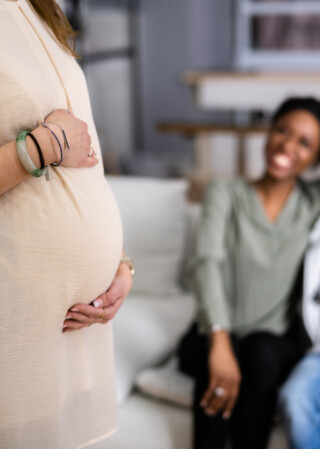*Warning – this article may be triggering to others*
This month we discuss a sensitive topic of the law relating to claiming compensation for the cost of surrogacy. Medical negligence occurs far more often that what we would like, and, sometimes, as a result of a defendant’s negligence, the plaintiff is unable to carry her own children. So, does the Australian law enable a plaintiff to claim the costs of surrogacy in situations where the defendant’s negligence prevents the plaintiff from carrying her own children?
A plaintiff, in medical negligence matters, is able to claim reasonable medical treatment expenses, including any future expenses that are likely to be incurred, as a result of the negligence. In a civil cases, the plaintiff bears the burden of proof; that is, the plaintiff is required to prove, on the balance of probabilities, that such an expense is reasonable – this is done by way of evidence in support. Accordingly, a plaintiff may wish to claim surrogacy as a treatment expense in a personal injury claim where the negligence has caused infertility.
Surrogacy is when a person carries and gives birth to a baby on behalf of someone else (here the plaintiff) with the intention of giving the child to the parent/s, once born.
There are two types of surrogacy, an altruistic or commercial surrogacy. An altruistic arrangement is where the surrogate (woman carrying the baby) is reimbursed for her reasonable expenses (which can become quite costly and must be paid for by the parent/s). The woman carrying the baby does not receive any financial payment or reward for being a surrogate. A commercial arrangement is where the surrogate is reimbursed for medical expenses and receives financial payment or reward for being a surrogate. Commercial arrangements are currently illegal in Australia.
The law in Australia
At this stage, the Courts have not made a decision in relation to claiming the expenses of surrogacy in Australia. However, noting the UK decision below, it can be arguable that such expense/s could be recoverable if, of course, the plaintiff can prove that the cost of such an expense is reasonable.
The law in UK - Whittington case
This is a UK decision relating to a delayed diagnosis of cervical cancer. At the time of discovering the diagnosis, the plaintiff was 29 years of age. Upon learning of her diagnosis, she decided to retrieve her eggs, and have surgery and chemo-radiotherapy. Unfortunately, these procedures resulted in the plaintiff sustaining injuries which prevented her from being able to carry her own children. Prior to the diagnosis, it was the plaintiff’s intention to have a large family.
The plaintiff claimed, amongst other things, the expense of commercial surrogacy arrangements using her own eggs and a surrogate in California, USA. At first, these expenses were rejected and considered unreasonable by the Court, however, following an Appeal, it was decided that, despite commercial surrogacy being illegal in UK, there was nothing illegal about the plaintiff using her own eggs and a surrogate in California, USA. It was noted that, California supports commercial arrangements. The majority of the Court noted that:
a) The proposed treatment (here, the cost of commercial surrogacy) must be reasonable; and
b) There was nothing illegal with the proposed commercial arrangement as these arrangements are supported in California, USA.
c) The cost of the proposed treatment must be reasonable.
In conclusion, whilst the UK decision referred to above supports the claim for surrogacy as a treatment expense, it should be noted that such expenses may not be supported by the Australian Courts as there currently is no applicable law.


